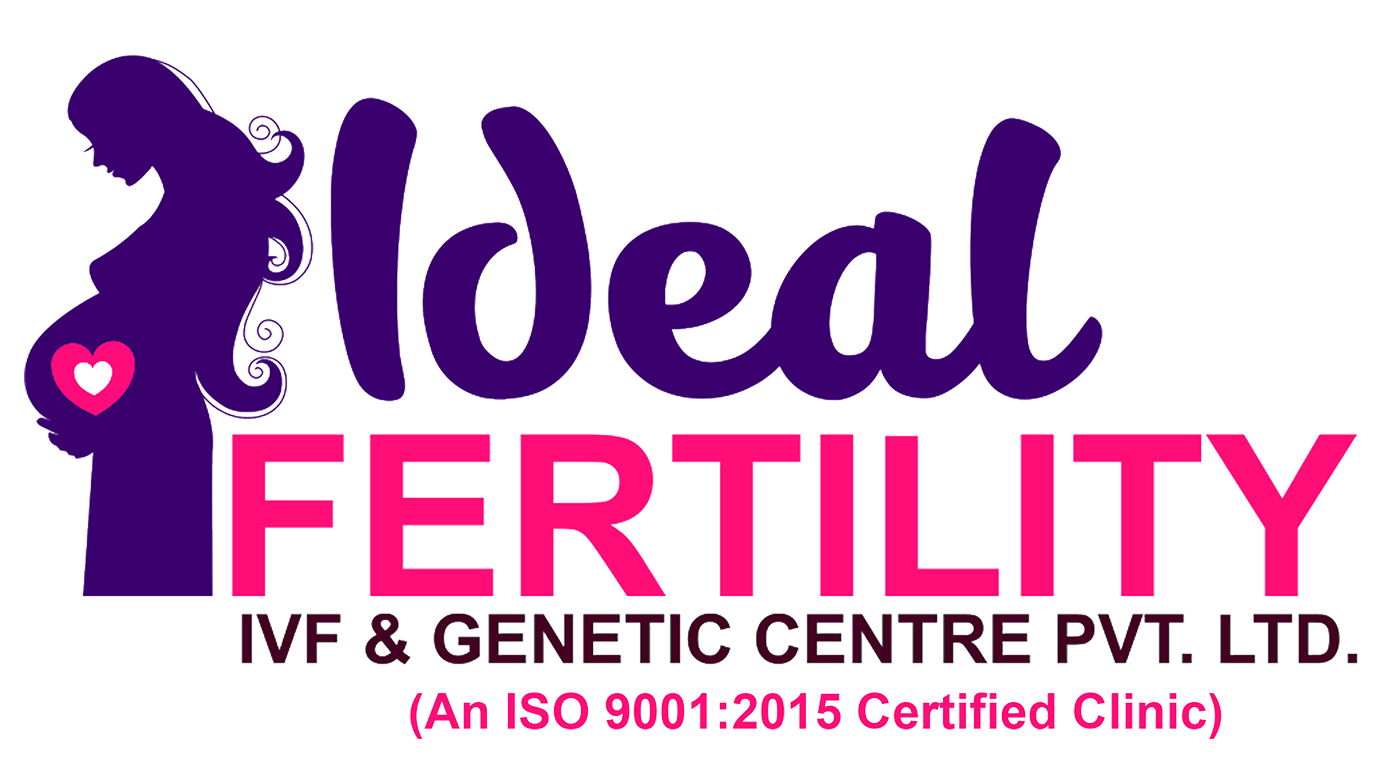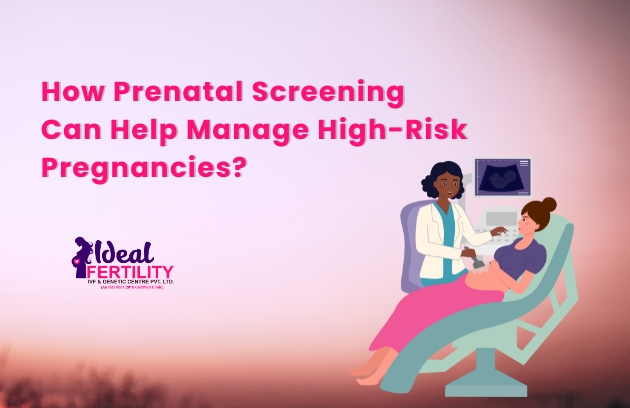Table of Contents
Prenatal screening plays a crucial role in identifying potential risks in pregnancy, allowing parents and healthcare providers to take timely and informed decisions. For high-risk pregnancies, these screenings can be life-saving, helping to detect genetic conditions, chromosomal abnormalities and developmental issues early on. By understanding the different types of prenatal screenings available, parents can prepare for any potential complications and ensure the best care for both mother and baby.
What is Prenatal Screening (प्रसवपूर्व जांच)?
Prenatal screening consists of non-invasive tests designed to assess the likelihood of genetic disorders or birth defects. Unlike diagnostic tests, which confirm conditions, screening tests provide a probability that a baby may have a particular condition. These tests include blood work, ultrasounds and advanced DNA analysis, helping doctors determine the need for further testing.
Women with high-risk pregnancies – such as those with a history of genetic conditions, advanced maternal age or other risk factors – often undergo more detailed screenings to monitor fmu health.
Managing a High-Risk Pregnancy with Prenatal Screening
Managing a high-risk pregnancy involves a more detailed and focused approach to ensure the health of both the mother and the baby. Specialized care in a Fetal Medicine Unit (FMU) clinic (भ्रूण चिकित्सा इकाई (एफएमयू) क्लिनिक) is vital, where advanced screenings and techniques are used to closely monitor the pregnancy. This includes:
- Prenatal Screening: Various tests such as blood work, ultrasounds and genetic screenings help detect potential risks or complications early on. These screenings are essential for identifying conditions like chromosomal abnormalities or developmental issues.
- Genetic Counseling: This helps expectant parents understand the risks of passing genetic disorders and provides them with the information needed to make informed decisions.
- Specialized Ultrasounds: These provide a detailed view of the baby’s growth, development and well-being, allowing for the detection of structural or functional abnormalities that may not be visible through standard ultrasound.
FMU clinics (एफएमयू क्लीनिक) are designed to provide high-risk pregnancies with the best possible care, offering tailored monitoring and interventions that help manage the complexities that arise during such pregnancies.

First Trimester vs. Second Trimester Screening: What to Expect in Prenatal Screening?
Prenatal screenings are generally categorized into first and second trimester screenings, each serving a specific purpose in detecting abnormalities.
First Trimester Screening for Aneuploidy
First trimester screening is conducted between 11 to 13+6 weeks of pregnancy. It evaluates the likelihood of chromosomal abnormalities such as trisomy 21, trisomy 18 and trisomy 13.
- Double Marker Test
- This test involves measuring pregnancy-associated plasma protein A (PAPP-A) and free beta-human chorionic gonadotropin (β-hCG) in maternal blood.
- Low PAPP-A levels can indicate trisomy 21, 18 or 13, while high β-hCG levels are often linked to Down syndrome.
- Nuchal Translucency (NT) Scan
- This ultrasound measures fluid accumulation at the back of the baby’s neck.
- A thicker NT measurement can signal an increased risk of genetic abnormalities.
- Non-Invasive Prenatal Testing (NIPT)
- A highly advanced screening that analyzes cell-free fetal DNA from the mother’s blood.
- It is more accurate than traditional screenings and can detect chromosomal abnormalities as early as 10 weeks.
Second Trimester Screening for Aneuploidy
For those who missed first trimester screening or require further evaluation, second trimester screening provides another opportunity to assess fmu fertility health.
- Triple or Quadruple Screen
- Conducted between 15 to 22 weeks, this test measures:
- Alpha-fetoprotein (AFP)
- Human chorionic gonadotropin
- Estriol
- Abnormal levels indicate risks of neural tube defects, Down syndrome or trisomy 18.
- Conducted between 15 to 22 weeks, this test measures:
- Genetic Sonogram / Anomaly Scan
- Performed between 18 to 22 weeks, this ultrasound detects structural defects in the heart, brain, kidneys and limbs.
- It also assesses markers that may indicate Down syndrome or other chromosomal conditions.
Down Syndrome and Prenatal Screening: What Parents Need to Know?
Down syndrome, also known as trisomy 21, occurs when a baby inherits an extra copy of chromosome 21. This additional genetic material affects physical and cognitive development, leading to consider:
- Distinct facial features
- Mild to moderate intellectual disabilities
- Delayed growth and speech development
- Increased risk of congenital heart defects and other health conditions
The severity of Down syndrome varies among individuals, but early interventions and therapies can significantly improve the child’s quality of life.
How Accurate are Prenatal Screening Methods?
- Integrated screening (first + second trimester) has a 95% accuracy rate.
- First Trimester Screening (NT + Blood Tests): Identifies 82-87% of cases.
False positives and false negatives can occur, leading to unnecessary stress or missed diagnoses. If a screening result is abnormal, diagnostic tests like amniocentesis or chorionic villus sampling (CVS) are recommended for confirmation.
Key Factors of Prenatal Screening in High-Risk Pregnancies
- Early Detection & Intervention: Helps in identifying congenital abnormalities early.
- Informed Decision-Making: Parents can explore treatment options, medical interventions or lifestyle adjustments.
- Personalized Prenatal Care: Women with high-risk factors receive closer monitoring at an FMU fertility center to ensure optimal health for both mother and baby.
- Emotional & Psychological Preparation: Allows parents to mentally and emotionally prepare for any potential challenges.
The Role of FMU Clinics in Managing High-Risk Pregnancies
FMU clinics specialize in high-risk pregnancies, providing comprehensive care through fetal medicine experts (भ्रूण चिकित्सा विशेषज्ञ). Services often include:
- Advanced prenatal screenings (e.g., NIPT, anomaly scans)
- Diagnostic procedures for genetic conditions
- Fetal therapy & interventions for complications detected in utero
- Genetic counseling to help families understand screening results
Expecting parents, especially those at risk, benefit from consulting with FMU clinic specialists to ensure a safe and well-monitored pregnancy journey.
Conclusion
Prenatal screening plays a vital role in managing high-risk pregnancies, offering early insights into potential genetic conditions. By undergoing first and second trimester screenings, parents can gain valuable information about their baby’s health and take proactive steps when needed. While these screenings are not diagnostic, they provide an opportunity for early intervention, personalized prenatal care and informed decision-making. High-risk pregnancies, in particular, benefit from specialized care at FMU clinics, ensuring both maternal and fetal well-being.
FAQs About Pregnancy Screening (गर्भावस्था जांच)
Q1. Is prenatal screening necessary for every pregnancy?
Q2. What happens if my prenatal screening result is positive?
A positive result does not confirm a genetic condition but indicates an increased risk. Your doctor may suggest further diagnostic tests like amniocentesis or CVS for confirmation.
Q3. How safe is Non-Invasive Prenatal Testing (NIPT)?
NIPT is completely safe for both mother and baby as it involves only a blood test. Unlike invasive tests, it carries no risk of miscarriage.
Q4. Can a normal screening result guarantee a healthy baby?
No screening test is 100% accurate. While a normal result reduces the likelihood of genetic conditions, it cannot guarantee the absence of all potential birth defects.
Q5. Where can I get specialized care for high-risk pregnancy screenings?
For high-risk pregnancies, consulting an FMU fertility center or a fetal medicine unit (FMU clinic) is ideal. These centers offer advanced screening and expert care to monitor fetal health closely.



